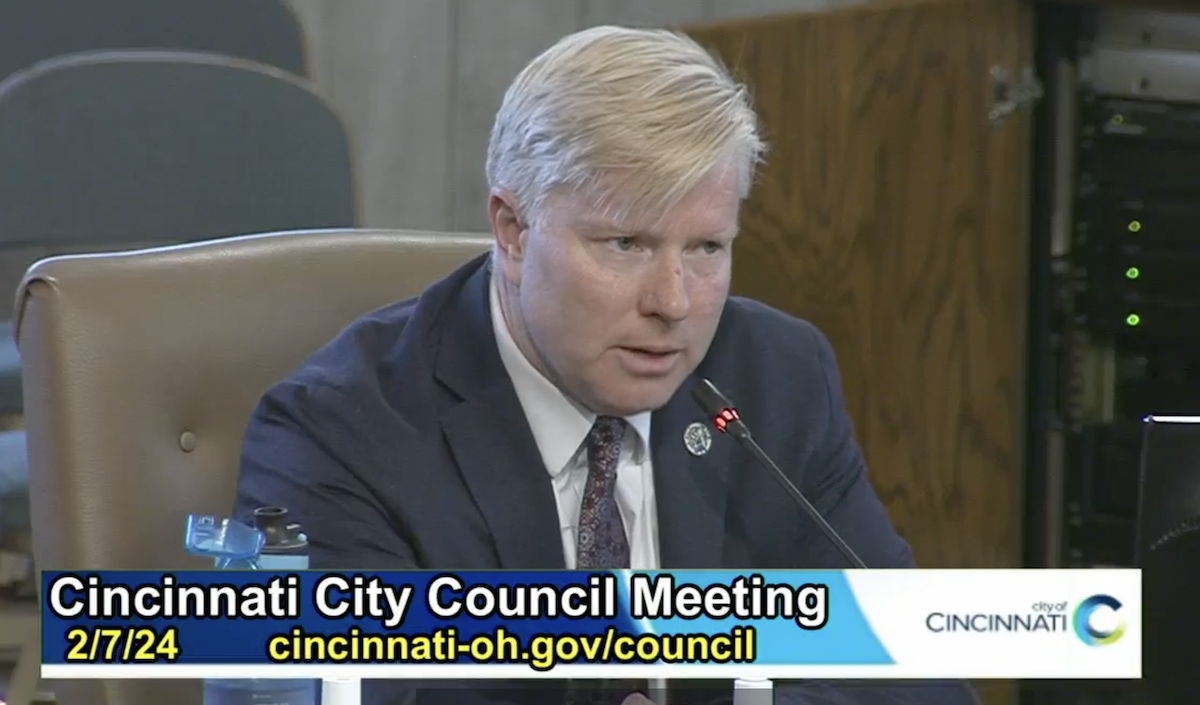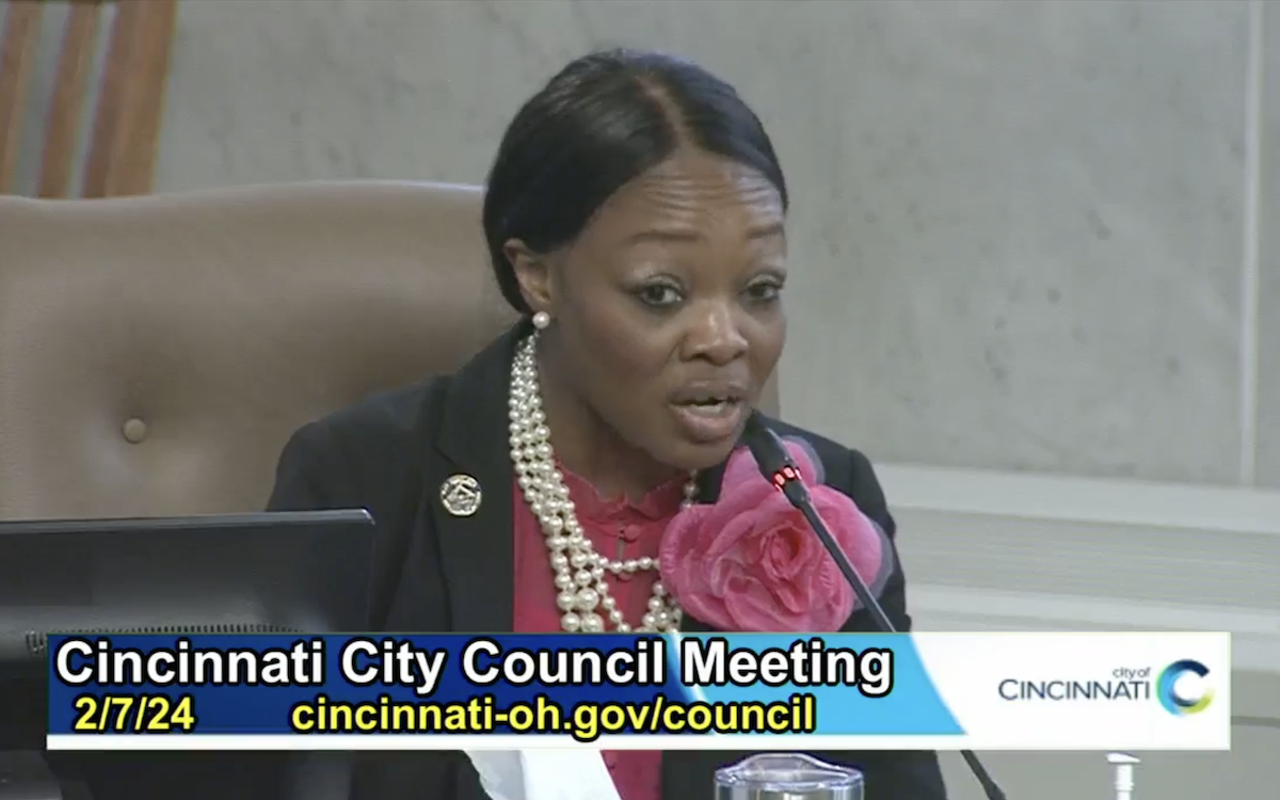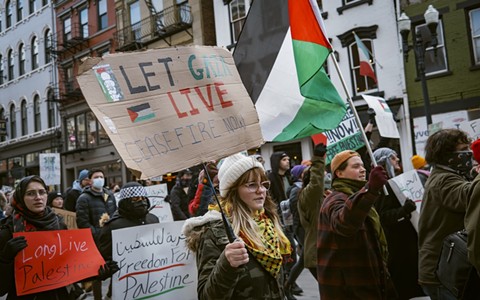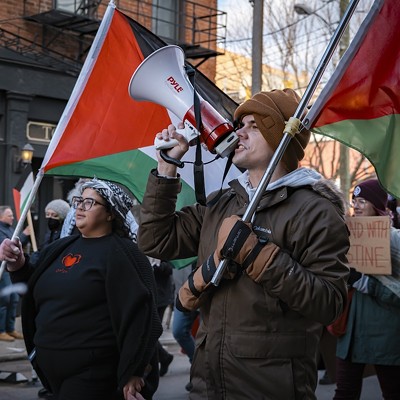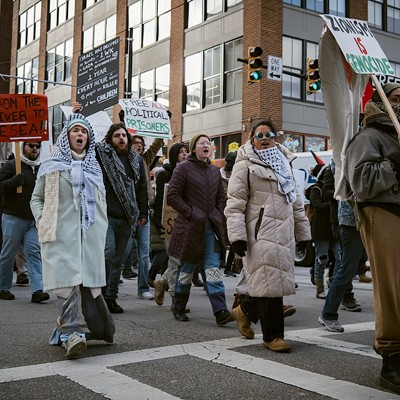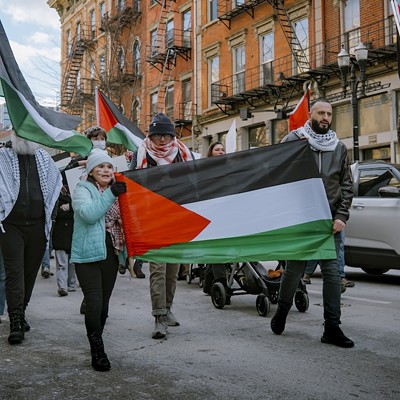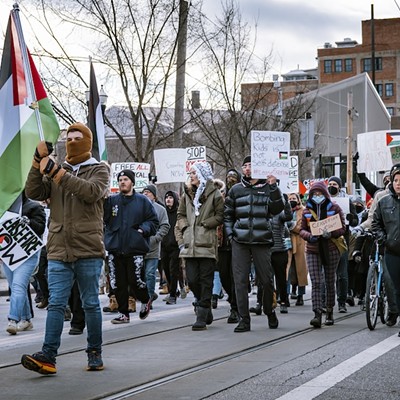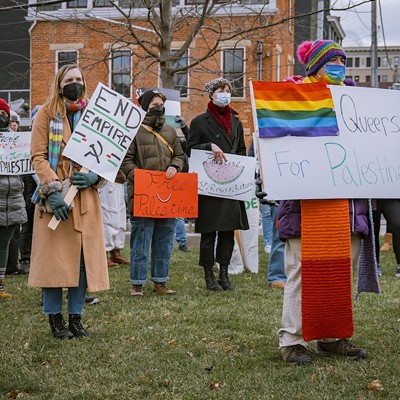Cincinnati City Council declined Wednesday to draft a resolution calling for a ceasefire in Gaza, deciding no language proposed would be enough to please the city’s Arab, Palestinian and Jewish communities.
“At this time, I do not believe council should take up this issue,” Mayor Aftab Pureval said, also discussing the work he and council had done to create a resolution before abandoning the idea. “Members of this council and myself have heard from the residents who’ve come before us, and have worked with Jewish and Palestinian local leaders to draft consensus language around a resolution that would speak a unified voice in Cincinnati.”
However, Pureval said it’s become clear that at this time that consensus language doesn’t exist for “an issue that is among the most nuanced and complicated in international affairs.”
“For so many of us, it’s difficult to separate our personal feelings for what is best for our city,” he said.
On Feb. 7, Cincinnati City Councilmember Meeka Owens spoke in favor of a ceasefire resolution, saying “For several weeks now, we as an elected body have been silent from this dais …We were not elected to be silent in the face of the pain of our constituents.”
While leaders like Vice Mayor Jan-Michele Lemon Kearney said she was “proud to work with council members and Palestinian and Israeli communities in Cincinnati to create a resolution calling for a bilateral humanitarian ceasefire,” no resolution has been introduced. The meeting on Wednesday was to hear out members of the community and decide if producing a ceasefire statement was worthwhile.
Though the council’s meeting began at 1:30 p.m., public comment on a resolution lasted for four hours, as hundreds of people gathered in the council room to advocate for, or advise against, crafting a resolution.
Voices opposed to a resolution included rabbis and leaders from the American Jewish Committee and the Jewish Federation of Cincinnati, among others. Supporting a resolution were students, members of the Palestinian American community, pastors and activists in the Cincinnati socialist community.
Against the resolution
The anti-resolution speakers focused on antisemitism, the Oct. 7, 2023, attacks on Israel, threats from Hamas, and the division such a resolution may cause.
“Both our Jewish and Palestinian communities are hurting deeply because of the Israel-Hamas conflict,” said Danielle Minson, CEO of the Jewish Federation of Cincinnati.
Minson spoke against the ceasefire resolution, saying “our concern is if our city council takes a stand on advocating for a ceasefire, it will widen the gap between our Jewish and Palestinian communities here in Cincinnati.”
Minson felt that the resolution would overlook critical issues, “such as the release of the hostages from Hamas risks further estranging the Jewish and Palestinian communities here in our city. It risks deepening the divide at a time when unity and conversation are needed.”
Rabbi Margaret Meyer said she is frightened and worried.
“For the past few years antisemitism, racism, Islamophobia and other hatreds have grown in our community. Since Oct. 7, we Jews have been the victim of violent antisemitism in schools, synagogues, even on the streets,” Meyer said. “We all need desperately to come together, to listen to each other, and work with one another here in our community. And you, our leaders, need to be the ones to bring us together.”
Justin Kirschner, Regional Director of the American Jewish Committee, said the actions of the Jewish community today are a response to the memory of millennium-old eras of Jewish suffering and persecution.
“Whether it be Lenin, Hamas, Hitler, you’re witnessing the beginning of the same old story unfold in a new age.” Kirschner said, speaking against a ceasefire resolution. “Rather than succumbing to hate and fighting among ourselves, let us begin a dialogue infused with love and kindness.”
For the resolution
Pro-resolution speakers emphasized civilian deaths and discrimination against Palestinians by the Israeli state, with many referring to Israel as an “apartheid state.”
Mohammad Ahmad, a Covington resident whose parents are from Palestine, spoke about his cousin, who he claimed was “gunned down in his car by Israeli settlers. They shot him over 10 times, and witnesses even said that they planted the guns on his body after they killed him.”
Calling Israel’s authority in Gaza and the West Bank a “suffocating occupation,” Ahmad urged city council to introduce a resolution.
“I know this ceasefire resolution won’t bring back my cousin or the countless lives lost before, on or after Oct. 7, but it will at least help ensure that thousands more Palestinians and Israelis can get a chance to live another day, where there will be a more prosperous tomorrow, where we can move forward with love, with hope, with unity and reconciliation,” he said.
Amber Wood, a Jewish woman and member of the Cincinnati Socialists, said, “To my fellow Jews and Americans here today who have found in themselves only hate and bigotry by refusing solidarity with Palestinians, by refusing to act to stop an ethno-nationalist genocide…you put us in danger. By conflating Judaism with the state of Israel, 30,000 martyred Palestinians, civilians starving, civilians who can never go home, you bring a tremendous shame on the Jewish people in front of the whole world.”
Dena Cranley, wife of former Cincinnati mayor John Cranley, said she is part of an interfaith coalition asking members of council to vote for a bilateral humanitarian ceasefire resolution so Israeli hostages can be released and Palestinians can receive the humanitarian aid they desperately need.
“Some say the resolution is divisive, but the failure to call for peace is divisive to us, your Arab constituents, who will conclude that you believe the suffering of Arabs is not worthy of your concern,” she said. “That the worth of innocent Palestinian lives is inferior to others.”
Numerous Ohio cities have voted on, and some have even passed, ceasefire resolutions.
The Dayton City Commission unanimously issued a resolution calling for a ceasefire on Dec. 20 last year, and the Akron City Council passed a resolution on Nov. 20, 2023, while the Toledo City Council has also called for a ceasefire.
Meanwhile, discussions on a ceasefire resolution are ongoing in Columbus, and Cleveland’s city council has stated they won’t consider a resolution on the subject.
This story was originally published by the Ohio Capital Journal and republished here with permission.
Follow us: Apple News | Google News | NewsBreak | Reddit | Instagram | Facebook | Twitter | Or sign up for our RSS Feed

